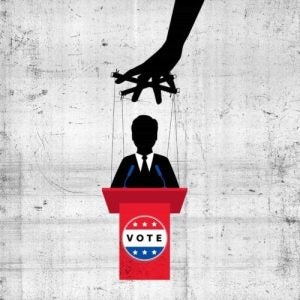The post The mining dam collapse in Brazil has an impact on the right to health, and it is much bigger than you would imagine discussed how the recent environmental disasters in Mariana and Brumadinho, Brazil, affected the population’s health in more or less obvious ways. Later, the post Business, Human Rights and the Environment explored the inextricable connection between the environment and human rights, calling businesses to act with due diligence in light of the environmental situation. It also briefly touched upon the fact that the industries of fossil fuel and tobacco sometimes have similar behaviors, particularly in denying the risks of certain products despite factoring them in decision-making. Now, it is time to go a bit further in exploring the extent of these similarities.

Last month, Daniel Cerqueira and Letícia Aleixo discussed how transnational litigation could help overcome corporate impunity—a reflection based on the aforementioned environmental disasters in Brazil. In doing so, the authors describe a series of circumstances related to the mining industry that could easily be translated into the context of other business sectors, such as food and tobacco. Not necessarily in this order, they talk about: (i) a permissive regulatory and oversight framework; (ii) the corporate takeover of permitting and/or inspection procedures; (iii) the difficulties in approving revised legislation due to large donations to politicians across the political spectrum and the rhetoric of framing regulation as an “obstacle to development”; (iv) the fact that the companies themselves commission studies on impact, whereas the government has no institutions capable of assessing their suitability; (v) the omission of information regarding a dangerous state of affairs; and (vi) the difficulties in achieving redress for the victims, which often leads to cross-border litigation. In short, Cerqueira and Aleixo describe this tragic scenario as one in which “corporations dictate the rules of the game”.
For those working in the field of non-communicable diseases, particularly food: does this ring a bell? Here are just a couple of examples.
In the last months, a series of investigative journalism in Colombia has been speaking out about the relationship between the food and beverage industry and the government. La Liga Contra el Silencio (in English, “League Against Silence”) published a few articles, one of them discussing the lack of regulation regarding the so-called energy drinks. In another, they denounced an experiment allegedly conducted by a beverage company in an underpriviledged region of the country. It consisted in the distribution of free drinks to children, followed by lab tests to assess health impact—all disguised as Corporate Social Responsibility and unchecked by the government. Finally, the League Against Silence disclosed the “revolving doors” between the food and beverage industry and the administration of Iván Duque and shed light on the lobby carried out by corporations against a bill about front-of-package labeling. The underlying message seems to be the same: corporations are dictating the rules of the game.
This probably only scratches the surface of the coincidences between the scenarios of mining and food and beverage. In any case, it is definitely worth starting a conversation about lessons learned.



